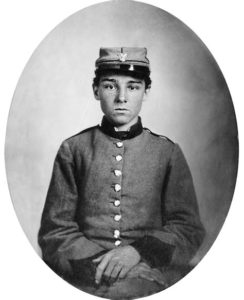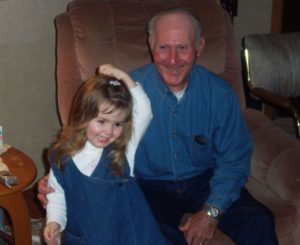“I am not writing these things to shame you, but to warn you as my beloved children. For even if you had ten thousand others to teach you about Christ, you have only one spiritual father. For I became your father in Christ Jesus when I preached the Good News to you. “ 1 Corinthians 4:14-15
This past Sunday I gave a Father’s Day message at our church. For those of you who were there, some of this material will sound familiar, so I apologize. However, If you could not hear or fell asleep, some of this might be a welcome rerun. It is funny that I have been asked to do the Father’s sermon five times in recent years, especially since even my kids don’t give me a #1 Dad coffee mug. They give me one with my actual ranking on it! I don’t mind, though, because it is a really, really large mug to get that number on it!
Our text is 1 Corinthians 4:14-21 and in those verses Paul outlines a recipe for successful fathering, even though the context was not about that. Paul was actually confronting the leaders in Corinth about the problems they were having in the church. Apparently there were problems with squabbling , poor leadership, misguided direction, sin, bad theology and misunderstandings in the fledgling church. In this letter Paul admonished, warned, and challenged the people but also showed compassion, concern, and care in his correction.
In light of Paul’s statement that, “I became your father in Christ Jesus through the gospel” we can also view this passage as a biblical model for fatherly behavior. I believe these verses
outline what fatherly compassion, fatherly authenticity and fatherly discipline should look like. The same kinds of problems seen in the Corinthian church can plague families if
 parents, especially fathers, do not take their role seriously.
parents, especially fathers, do not take their role seriously.
Since Sunday was Father’s Day and since Paul was speaking as a father, I was specifically speaking to fathers, but the principles outlined in these verses apply to anyone who is in a leadership, discipling, or mentoring position in someone else’s life. So mothers, grandmothers, grandfathers, uncles, aunts, scout leaders, teachers, etc.etc. can take note of Paul’s words.
In the first three chapters in the letter and the first half of chapter four, Paul was pretty harsh in his words to the Corinthians. But at verse 14 he changes tone and becomes more “fatherly” in his approach. Paul is counting on the special  relationship as their spiritual “father” in the faith to be able to speak truth into their lives.
relationship as their spiritual “father” in the faith to be able to speak truth into their lives.
Verse 14 reads “I do not write these things to make you ashamed, but to admonish you as my beloved children…”
Paul does not want to shame the people back to him but he wants them to come to their senses and return willingly and gladly as wayward children returning to a forgiving Father. Shame might be a tool to be used at times (infrequently), but it is not a weapon to wielded.
I never remember my father using shame as a way to change my behavior when I was growing up. I am sure it happened, but it must have been seldom and followed by some kind of love, because I cannot remember any specific situations. My dad  was able to speak into my life and my brother and sister’s lives because he purchased that right through the love he showed us. My father didn’t tell me how to live rightly; he lived rightly, and let me watch.
was able to speak into my life and my brother and sister’s lives because he purchased that right through the love he showed us. My father didn’t tell me how to live rightly; he lived rightly, and let me watch.
Because of my father compassion, I have tried to do the same not only with my four children and eleven grandchildren, but the athletes I have coached, the students I have taught, and the children I have known and any others I may have had an influence over. I have often missed the mark, but it is still the desire of my heart.
The text goes on the say that the Corinthians will have many  other teachers, “guides” or “guardians,” but he wanted the leaders in Corinth to regard him as their “spiritual Father”.
other teachers, “guides” or “guardians,” but he wanted the leaders in Corinth to regard him as their “spiritual Father”.
15 For though you might have ten thousand instructors in Christ, yet you do not have many fathers; for in Christ Jesus I have begotten you through the gospel.
All of us were begotten physically by a father, but here Paul is talking about spiritual birth. He understood that all will be born once, but only those who are born twice can live lives of true peace. Paul has a special place in their lives because he had brought the life-changing gospel message into their lives. He’s not being territorial, but he was the first spiritual “Daddy” in their lives and that gave him the responsibility and right to lead them.
 As Daddy’s (and I am still talking to everyone who have influence on younger ones) we need to understand that we should not just exert our rights as parents but compassionately disciple our children.
As Daddy’s (and I am still talking to everyone who have influence on younger ones) we need to understand that we should not just exert our rights as parents but compassionately disciple our children.
Many think that disciplining is discipling, but they are not the same thing and Paul understands that. Disciplining is a part of discipling, but it is not the biggest part. Compassion is the most important part of the parent/child relationship.
Of course the most compassionate thing we can do beyond everything else,  is to share and show the Christ-centered gospel to those in our care. Nothing was more important to the Apostle Paul. Nothing should be more important to us.
is to share and show the Christ-centered gospel to those in our care. Nothing was more important to the Apostle Paul. Nothing should be more important to us.
Here is the sad confession of one father. “I took my children to school but not to church.
I taught them to drink but not of the living water. I enrolled them in Little League but not Sunday School.
I showed them how to fish but not to be fishers of men. I made the Lord’s Day a holiday, rather than a holy day.”
“I taught them the church was full of hypocrites and made greater hypocrites of them and me.
“I gave them a color TV but provided no Bible. I handed them the keys to the car but did not give to them the keys of the kingdom of God.
I taught them how to make a living but failed to bring them to  Christ who alone can make a life.”
Christ who alone can make a life.”
In contrast to this father, I read the story of a farmer who had toiled over a bumper crop of grain – a badly needed crop that was going to pay off many creditors and secure the family for another year. But just a few days before it was due to be harvested a freak wind and hail storm ravaged the property, and the harvest was lost.
The man stood with his little boy looking over the fields of destroyed grain. The boy expected to hear his father crying out in despair., but instead his Dad began to softly sing: “Rock of Ages cleft for me, let me hide myself in Thee.”
Years later that boy, grown into manhood, said: “That was the greatest sermon I ever heard! It totally changed my life.” They say that a picture is worth a thousand words. This father proved that an example is worth a thousand pictures. It is easy to show faith with a  bumper crop, but real faith is shown when the hail comes, and it is exhibitions of faith like this that changes lives.
bumper crop, but real faith is shown when the hail comes, and it is exhibitions of faith like this that changes lives.
So the first part of these verses talks about the need for fatherly compassion when raising those in our care. Paul showed this compassion to the Corinthians. Christ said that the greatest commandment is to love God and to love others. This is illustrated in the cross. The vertical beam that points toward God supports the horizontal beams that stands for our relationship with others.  Without a relationship with God we cannot love others in the way Christ intends. We can love others in a human way, but not a spiritual one.
Without a relationship with God we cannot love others in the way Christ intends. We can love others in a human way, but not a spiritual one.
So our first step in fully loving our children is to love God.
Fatherly compassion must never be compromised when we have the care of others in our hands. Over the next two weeks I will show how Paul also showed fatherly authenticity and fatherly discipline in his correction of the Corinthians. We will also see how we can correct and connect with others in our own lives. Stay tuned.



















